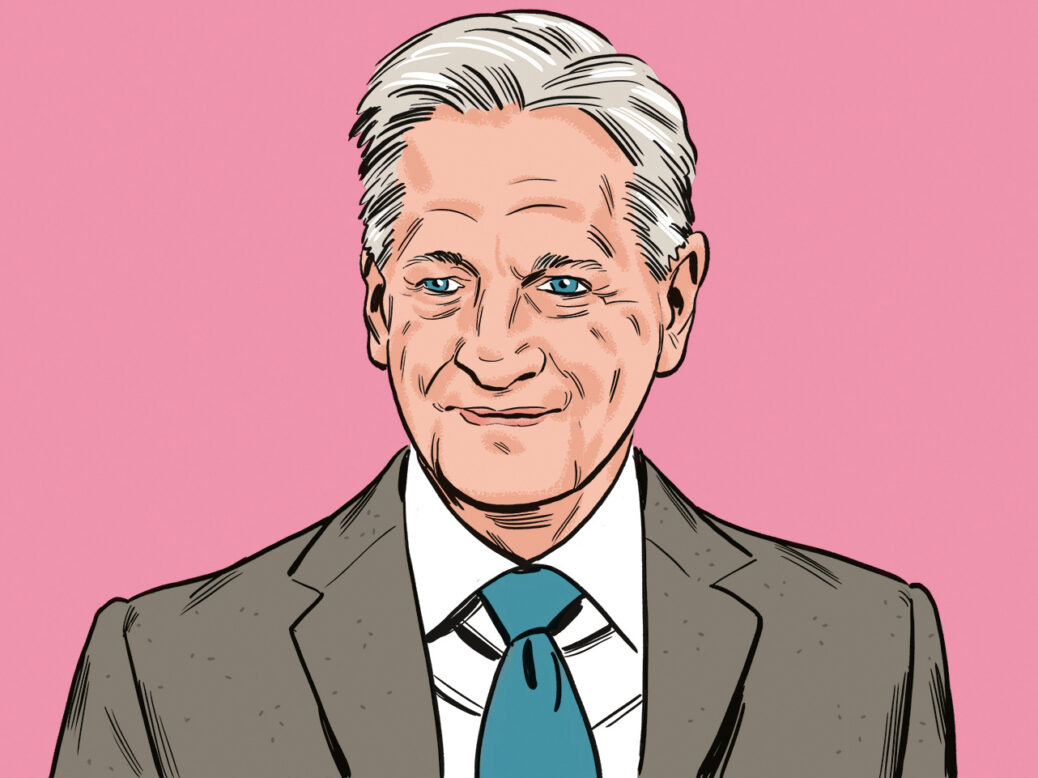
Nick Charles was born in Worcestershire in 1944 and began his career as an entertainer. A former alcoholic and homeless person, he is the founder of recovery projects including Alcohol Answers and the Chaucer Clinic.
What’s your earliest memory?
It’s from the immediate postwar period, when I was still in a pram. My father was a police officer and we lived in police-force accommodation west of Birmingham’s city centre. My mother and auntie – together with neighbours – stood in the streets to watch a victory flypast by RAF fighters and bombers. The sky went black and the noise was horrendous. I had nightmares.
Who are your heroes?
My childhood hero was the singer Lonnie Donegan, the Skiffle King. I idolised him. In adulthood, my hero is my mentor David Marjot. David was a consultant psychiatrist and adviser to the Alcohol Answers programme. He is currently studying for an MA in modern European philosophy at Kingston University – at the age of 93!
[See also: Alan Davies Q&A: “What would make my life better? Not needing a wee in the middle of the night”]
What book last changed your thinking?
The Bible. When I was in a homeless hostel I attended a Salvation Army church service. We had to go, if we wanted somewhere to take shelter during the cold weather. I experienced an unaccustomed peace and began reading the Bible periodically, and then more frequently. My situation seemed hopeless at the time – I had lost everything – but the Bible always seemed to bring me hope. I still read it every day.
Which political figure do you look up to?
Winston Churchill, the epitome of courage and leadership. He lost the 1945 general election, but when he became prime minister again in 1951, I recall people singing and dancing in our village streets.
What would be your “Mastermind” specialist subject?
Alcohol addiction, education and treatment.
In which time and place, other than your own, would you like to live?
The 1950s, provided I could time-travel back to the present when it suited me.
[See also: Winnie Byanyima Q&A: “I’m a nomad in the way I have lived and worked”]
Who would paint your portrait?
Alastair Adams. But I cannot think of one reason why he would want to.
What’s your theme tune?
“The Dam Busters March” by Eric Coates.
What’s currently bugging you?
The medical profession’s lack of understanding of alcohol addiction. In the seven years that doctors take to qualify, they are lucky if they do 40 minutes on alcohol addiction or treatment. Yet I estimate 90 per cent of their patients will be using alcohol, and many of them daily.
What single thing would make your life better?
If Aston Villa and Steven Gerrard were to form the perfect partnership.
When were you happiest?
When I was helping alcohol dependents, for the greater good.
In another life, what job might you have chosen?
If I had a choice, I would change nothing. My life and times have been extraordinary. To beat alcoholism and attain sobriety means a permanent process of unlearning all of the arrogance, deceit, conceit, illusion, delusion and dishonesty that, through alcohol, we have been training ourselves into for years. It means killing a part of ourselves and undergoing a kind of death – but there is an enormous reward. A fully recovered alcoholic will gain a unique insight into life and human nature, to a degree never found in someone who hasn’t had the experience.
Are we all doomed?
Never have doubts.
[See also: Steven Pinker Q&A: “I’m still alive because I’m a serial series binger”]
“50 Years of Hard Road: A Vagrant’s Journey” by Nick Charles is published by Hawksmoor
This article appears in the 26 Jan 2022 issue of the New Statesman, The Light that Failed






